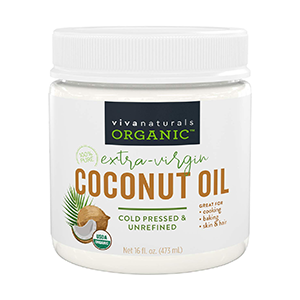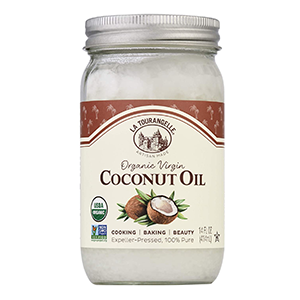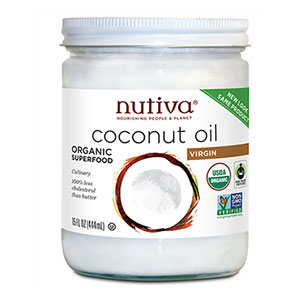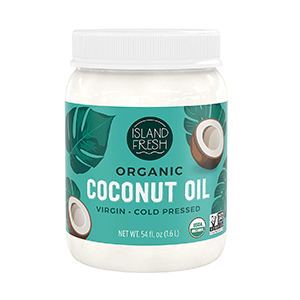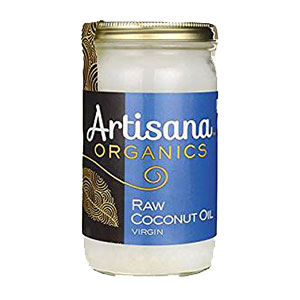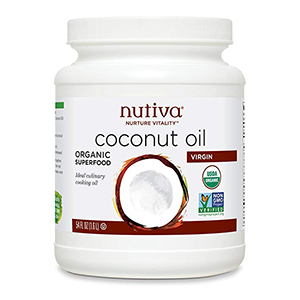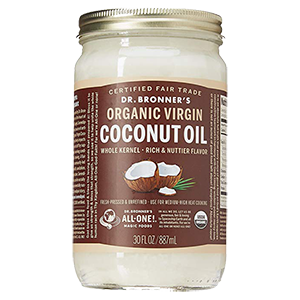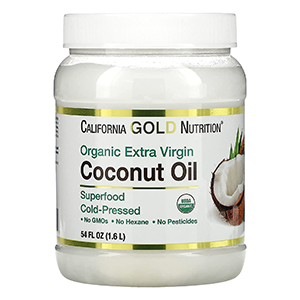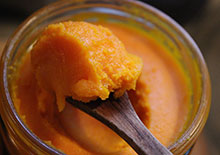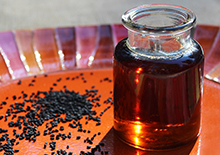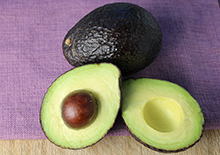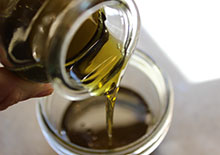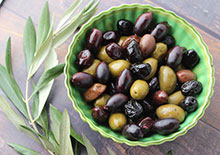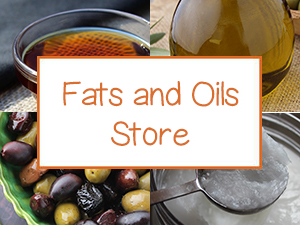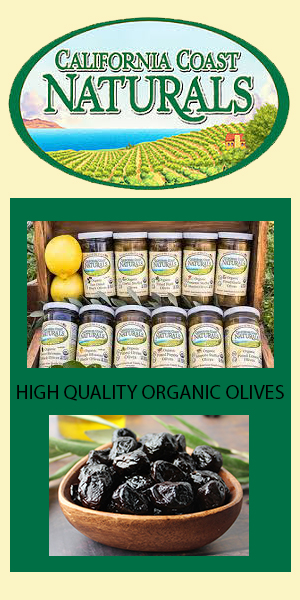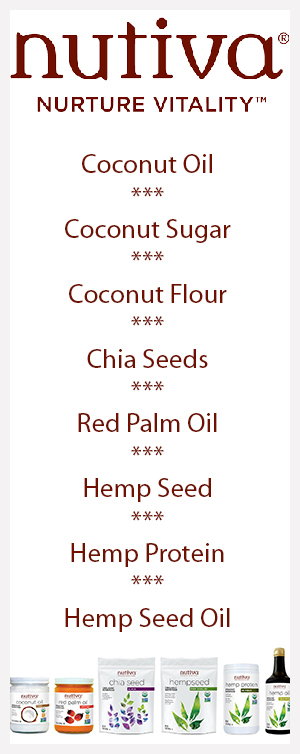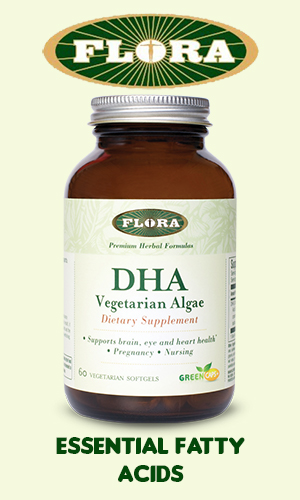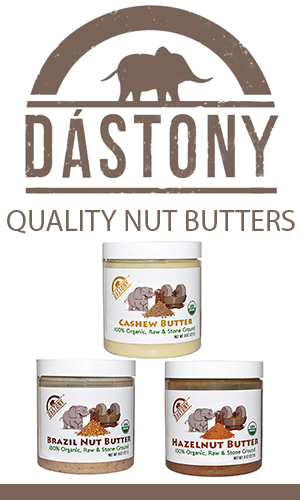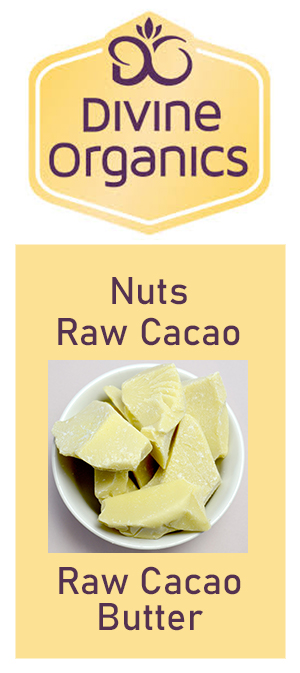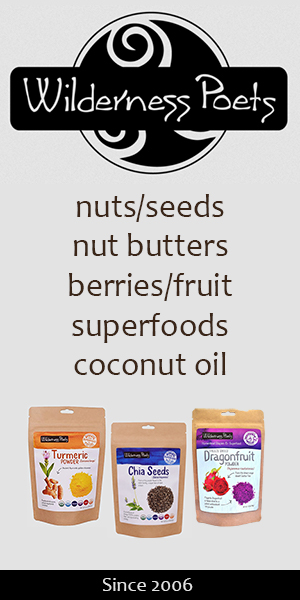Summarized List of the Benefits of Coconut Oil
Intro | MCTs | Coconut Oil Vs MCT Oil | Ketone Energy | Antimicrobial | Precautions | Shop
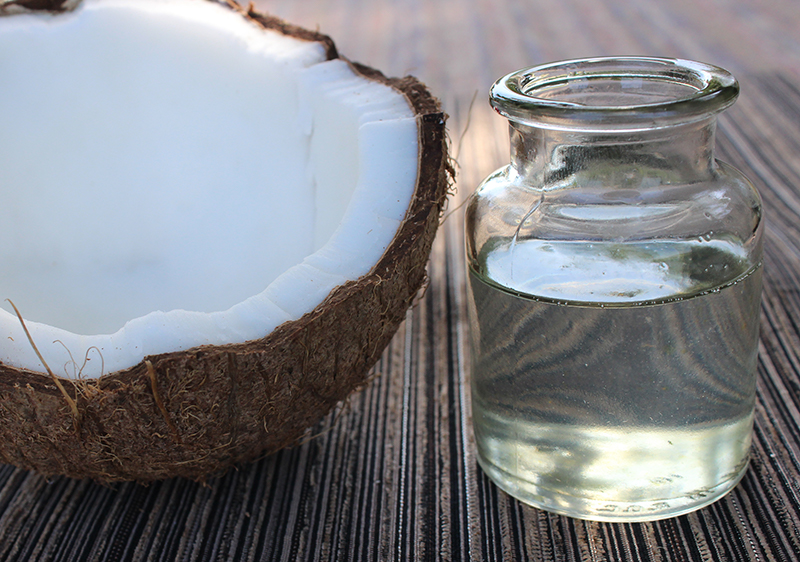
Coconut oil is an edible oil sourced from the meat (or kernel) of mature coconuts from the coconut palm or Cocos nucifera species.
The specific variety of dietary coconut oil we promote using is organic virgin coconut oil that is not refined, hydrogenated or fractionated. This is an unrefined oil that's usually either cold-pressed or expeller-pressed.
Here is a list of the benefits of coconut oil you may wish to ponder if you're a current coconut oil user or contemplating adding it to your pantry of oil staples. How does it compare to MCT Oil? We'll discuss that as well.
1) Medium Chain Triglycerides
Table of Contents
Intro | MCTs | Coconut Oil Vs MCT Oil | Ketone Energy | Antimicrobial | Precautions | Shop
Coconut oil first became popular way back in the 1990s as a type of "healthy fat" because of its higher medium chain triglyceride composition, predominantly lauric acid, capric acid, caprylic acid and caproic acid.
One of the greatest advantages of MCTs, as they're often referred to, is that they are more easily metabolized by the body. This is because they do not require bile for digestion like longer-chain fats. Therefore, after consumption, they're more readily available as an energy-burning fuel source rather than stored as body fat.
Coconut oil is about 80% saturated fat and in some research is suggested to have a more favorable lipid profile than animal-based long-chain fatty acids.
While plant-derived oils or foods don't contain cholesterol, like meat, eggs and dairy, evidence suggests they can indirectly raise both HDL cholesterol as well as LDL cholesterol in some but not all cases.
It is necessary to include some saturated fats in the diet for proper neurological and hormonal functioning. It is also important to consume the right amount of saturated fat in proportion to the ratio of monounsaturated and polyunsaturated fats in the diet. When used in moderation, unrefined oil from the coconut can help to balance this intake.
Because of its higher smoke point, like avocado oil and ghee, it is often used as a type of cooking oil for low or medium-heat sautéing or grilling. It can also be added directly to meals or used in recipes.

2) Coconut Oil Vs MCT Oil
What's the benefit of coconut oil vs MCT oil? MCT oil is a fractionated oil derived from either coconut or palm kernels. This is a technique that separates the caprylic acid (C8), capric acid (C10) and in the case of coconut the lauric acid (C12) as well.
It is thus more concentrated in medium-chain fatty acids, but can sometimes go through way more refining to get there. This makes it a flavorless, odorless liquid.
Often techniques utilized depend on the manufacturer and the different methods of fractionation such as steam, dry, wet, solvent or supercritical extraction. Of these types, solvent fractionation would be our least favorite.
Personally, we prefer straight-up unrefined coconut oil over MCT types.
We would say if you choose to consume MCT oil, a higher-quality organic coconut-derived variety is better.
MCT oil is highly marketed in sports nutrition, weight management and to those on a ketogenic diet as a brain and body fuel source. Usually, these oils are used as a dietary supplement to be taken in smaller quantities.
It's slightly more convenient as a pourable liquid compared to coconut oil which tends to solidify at room temperature.
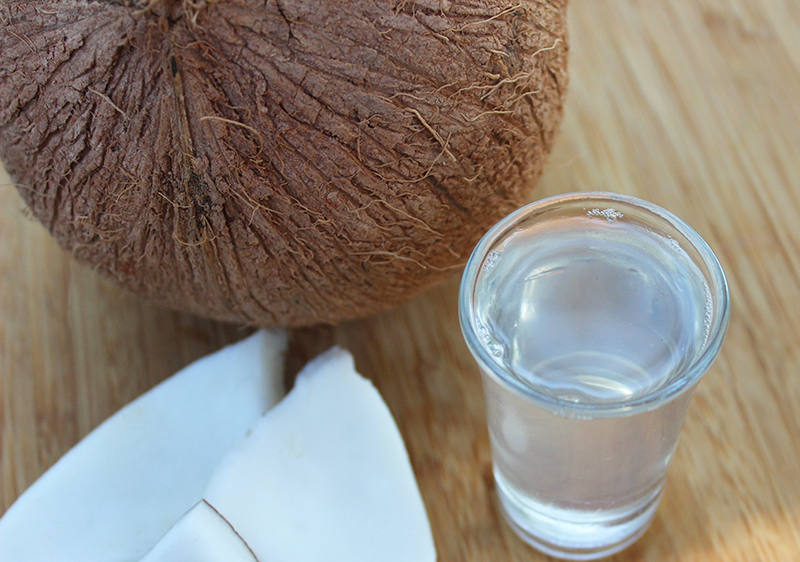
3) Ketone Energy Source
Coconut oil is a plant-powered fat option over the average dietary long-chain fats. Again, medium-chain fatty acids are used as an instant energy source or converted into ketone reserves that can pass through the blood-brain barrier.
One of the key factors believed to play a significant role in neurocognitive decline in those with AD is the inability of the brain to convert glucose to energy for it to function optimally.
Interestingly, the therapeutic use of coconut oil became especially popular in 2008 when it was utilized as a home remedy to temporarily improve cognitive functions for an individual with neurodegenerative disease. (Source)
Getting to the point of using ketones as a body/brain fuel is one of the well-known advantages when adhering to the mentioned keto diet. This essentially involves the burning of dietary fats for energy rather than carbohydrates.
Ketogenic diets can be helpful for those looking to reduce excess body weight. The consumption of coconut oil also helps to slow down the absorption of foods so you feel satiated for longer periods of time.
4) Antimicrobial and Antifungal
Coconut meat, and especially its concentrated oil, is known for its high amounts of lauric acid, a precursor that makes monolaurin, a natural antiseptic that has been shown to inhibit unwanted bacteria, yeast and fungal infections.
Antimicrobial qualities are also present in coconut oil's capric acid content. It is therefore an often recommended choice for those with candida overgrowth or fungal issues, whether consumed as part of a health-promoting diet or applied directly on the skin.
Precautions:
It's best to seek the advice of a healthcare professional before adding coconut oil to the diet if you have a serious health condition, are taking any medications or are pregnant or nursing.
Shop Related Products (About Affiliates & Amazon Associate Paid Links)
Affiliate Disclaimer: This section contains affiliate product links. If you make a purchase through our recommended links, we receive a small commission at no additional cost to you. Thanks for the support.
